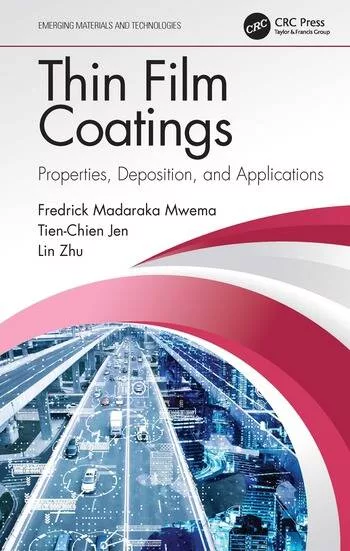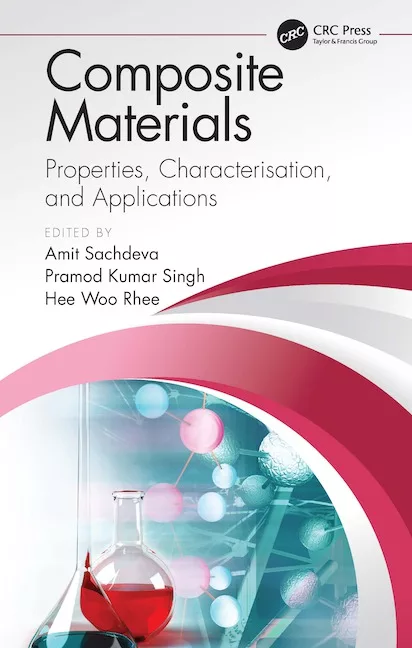Particle-Based Color Technology for Marine Applications
Respect Innovations, a small company of inventor-entrepreneurs based in East Hartford, CT, has recently added another subdivision to its panoply of development and marketing entities held under the aegis of Spek-Trum Industries.
Advanced Marine Technologies is directing its formidable technology and marketing efforts at the marine industry, offering a range of new products for every kind of water vessel, from pleasure crafts to commercial ships and barges.
The technology that drives Advanced Marine Technologies derives from the same process that made a dramatic entry into the automotive coatings industry, says Respect Innovations chairman, CEO, and resident inventor, Andrew Spencer.
The only thing that's different is the application, he says. He adds that the particle technology that Respect Innovations has developed can be applied to virtually any industry that employs coatings and is concerned with safety.
"We're entering a zone that's never been explored before," Spencer says, essentially reciting a key mantra of his company. "With the same technology, we're able to hold color inert within a particle, which opens up a magnitude of different applications and opportunities."
In the article "No Pigment, No Problem" (PCI May 2001), Spencer explained the unique technology that he and his colleagues have discovered and developed. The proprietary process, dubbed Spek-Trum PCS¿ (particle color systems), is produced by Respect under its Micro Particle Technologies (MPT) division. The procedure replaces standard pigment-based color with micro- and nano-level particles of organic and inorganic materials.
In simplest terms, the technology can reduce earthly and synthetic elements to a level where they can hold color inert within a particle, Spencer explains. The micro and nano particle blends produced by MPT are the smallest particle blends manufactured in commercial volume, and are the smallest fragmented organic and non-organic materials currently known. As a result, a range of special effects can be produced, depending on the element used.
The applications and implications of such a process, as Spencer says, are virtually infinite. The coatings also successfully address and upgrade aesthetic, safety, and environmental concerns, he says.
For its marine application, Respect has established a new color design, where the company's designers Rick Gorden and Dan Zurmuhlen are testing and producing thousands of colors that have powerful coating and reflective abilities. The particle-based colors produced by the PCS method can be combined with the marine industry's standard gel-coating process. They can be delivered as an aerosol as well, for quick fixes and patching jobs, say Spencer and company.
"We can incorporate full color with gel coating," Spencer says. "This is brand new. Before this, the marine industry - especially pleasure boats - worked off of a palette of white, because any other colors fade drastically; they get beat up by ultraviolet rays on the water."
Respect Innovations technology broadens the palette choices of boat manufacturers exponentially, Spencer says.
"With what we have, we can design color for the marine industry just as we did with the automotive industry," he says. "Boat manufacturers can pick out a line of colors, because our colors will not fade. There are thousands of hues available. They'll be able to match exterior color into a full package of color design."
To dramatize the market value of PCS technology simply to the leisure boating side of the marine industry, Spencer refers to estimates from the National Marine Manufacturers Association (NMMA) that, in 1999 alone, 78 million Americans participated in recreational boating, a 4% increase over the previous year. That translates into $23 billion spent on boating in the United States in 1999, according to NMMA figures.
As an example of the potential high-end range of PCS technology, Spencer explains that Respect has coated a boat with a combination of Italian white marble particles and gel coating.
"By doing white marble, we're able to capture different planes of light," Spencer says. "We've made a kind of natural, metallic looking white; the reason it looks like it does is because of the natural characteristics of marble."
The powderized marble reflects and refracts the white color, Spencer explains, which can give a shimmer effect on the water and also can retain luminescent properties on the water.
The material works equally well on fiberglass, metal and virtually any material from which a marine vessel can be constructed, Spencer says.
White marble is "the ultimate upscale coating," he says. "By doing white marble, we've reinvented the color white. There is no higher end than being able to say, 'I have a marble yacht.'
"Each earth element has its own unique properties," Spencer continues. "There are thousands of elements available. We are able to take any element down to a certain size, where it holds the color and can be used in a spray. And this color process doesn't fade."
Spencer also points out that the particle technology can be applied to carbon fibers, which can be reduced to a size "that no one has ever seen before." With that, carbon fibers can be integrated into gel coatings to provide safe interior decorations for leisure craft. Powderized steel, magnesium and titanium can also be reduced and mixed into gel coatings, which, Spencer says, will make the strongest possible coatings for any vessel.
These applications address one of Respect Innovations' biggest concerns and missions - safety. The company's micro and nano technology can be used in every fact of boatbuilding, according to Spencer, making a vessel safe, from the outside coating to the inner carpets and fixtures.
"Relating to what we have, the marine industry is by far one of our largest markets," Spencer says. "The safety aspect is enormous." For example, PCS technology's reflective qualities, when hit by light, can produce immediate glow-in-the-dark effects for buoys that can last from a few minutes to up to eight hours.
"There are no safety applications that exist more than what we have," Spencer says. "We've turned science fiction into science fact. Nothing's unreachable. Being able to apply safety to where it's needed, in any industry, is our quest."
Besides its aesthetic and safety features, the particle arrangement process can be applied to developing anti-fouling and anti-barnacle coatings, common problems in the marine industry. Respect Innovations is currently developing those products, Spencer says.
Through various conductive processes applied to the micro and nano particle arrangements, anti-fouling coatings can be created with the ability to add low frequency vibrations during the coating process, he says. Such vibrations interrupt the larvae stage of barnacle development and disrupt their lifecycle. The cost savings, in terms of having to lift boats out of the water for long periods of time to scrape their hulls of barnacles, is enormous, Spencer says.
He explains the conductive process by noting that, "in the marine industry, you're surrounded by water. Batteries are usually made of two substances; the third one is water. We use particle arrangements that can achieve different results, and when you set them in water, they will generate energy. This dovetails into the safety aspects of the marine industry - life vests, lifeboats, buoys, docks and apparel. A plethora of safety products is possible."
Craig Spencer adds that current anti-fouling paints on the market can be environmentally unsafe, because they are full of hazardous metals. "The industry is looking for an alternative coating that has no hazardous side effects. Our coatings are environmentally friendly."
Respect is at the point with its marine industry focus that it is ready to negotiate with major coatings manufacturers, Spencer says. As with their automotive coatings application, its products are beginning to get noticed by some Fortune 500 companies, he adds.
"Our toolbox - our technology - is open to the world," Spencer says. "We want the world to embrace safety, and we have the means of delivering it. There are no applications that exist outside the boundaries of this technology."
For more information on Respect Innovations Inc., write 11 Village St., East Hartford, CT 06108; phone 860/289.3031; fax 860/289.3051; e-mail respectinnovations@yahoo.com; or Circle Number 81.
Looking for a reprint of this article?
From high-res PDFs to custom plaques, order your copy today!







